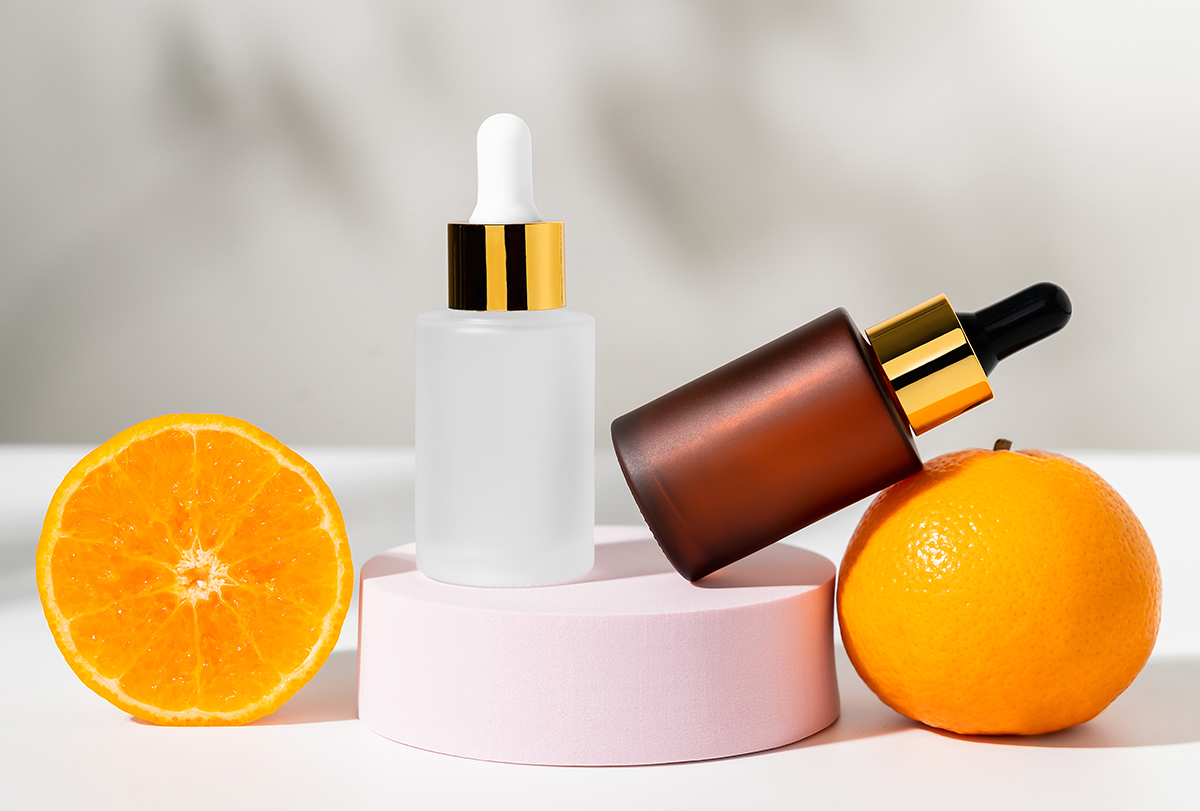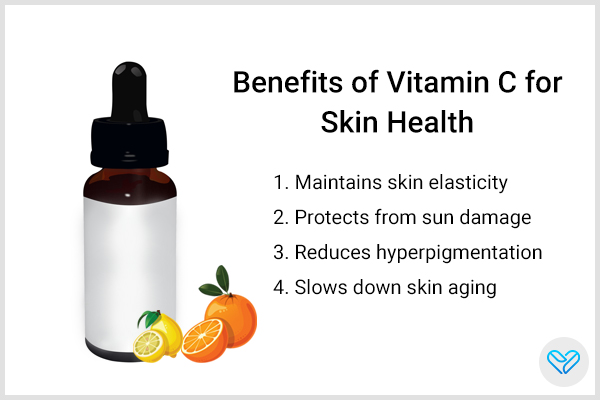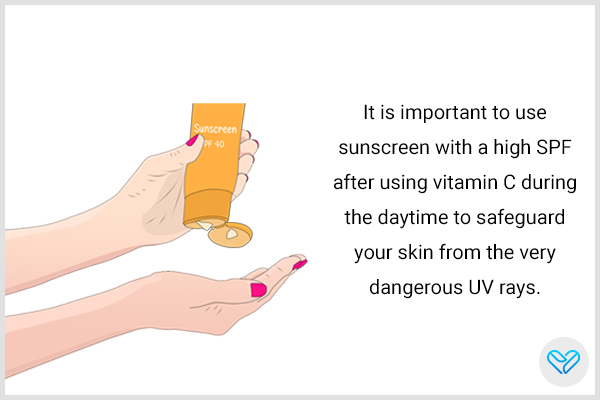In this article:
Navigating the ocean of skin care ingredients can be overwhelming, primarily when it comes to deciding between well-known ingredients such as ferulic acid and vitamin C. These two very famous ingredients often make headlines, but which one holds an advantage over the other?

The truth is both these ingredients have their own outstanding advantages and attend to different issues in dermatology, so neither is better than the other.
However, experts say that vitamin C can be slightly unstable on its own, and therefore, it is always better to mix it with other products such as the ones that contain ferulic acid.
This article will dig through the world of skin care and delve into the advantages and uses of ferulic acid and vitamin C. By understanding their properties, you can make an educated judgment about which ingredient works best in your skin care regimen.
What to Choose: Ferulic Acid or Vitamin C?
| Aspect | Ferulic Acid | Vitamin C |
|---|---|---|
| Source | Can be found in plants such as oranges and carrots | Can be found in citrus fruits |
| Skin benefits | Boosts hydration, fights signs of aging, reduces hyperpigmentation | Enhances elasticity, reduces hyperpigmentation, protects from sun damage |
| Stability | Very stable ingredient | Can be slightly unstable on its own |
| Recommended use | Useful for almost all skin types | Useful for almost all skin types |
| Precautions | Considered safe but may trigger allergies in some people | Considered safe but can have mild side effects such as tingling |
Both ferulic acid and vitamin C can be useful in your skin care. So, the choice eventually depends on personal requirements and desired effects.
While choosing either one of them is an option, researchers often speak in favor of using both of them together. According to one study, adding ferulic acid to vitamin C can further enhance the effectiveness of vitamin C.
Research has shown that a combination of 0.5% ferulic acid, 15% vitamin C, and 1% vitamin E can increase the efficacy of vitamin C by eight times. This powerful combination can help reduce acute and chronic sun damage and potentially be used for skin cancer prevention. (1)
Ferulic Acid and Its Role in Skin Care
Ferulic acid is a natural compound found in various plants, including bran, beets, oranges, carrots, and eggplant.
It boasts incredible antioxidant properties, combating dangerous chain reactions activated by free radicals. As a result, it offers numerous benefits for skin health, addressing concerns such as inflammation, wrinkles, dryness, and even skin cancer. (2)(3)
Benefits of ferulic acid for skin health

Ferulic acid is advantageous for your skin in many ways.
1. Boosts hydration and enhances complexion
Ferulic acid has been found to significantly improve skin hydration, leaving it moisturized and supple. It also helps reduce skin redness, leading to a more even and balanced complexion. (4)
2. Fights hyperpigmentation
By reducing melanin presentation, ferulic acid helps fade dark spots and promotes a healthy skin tone, unveiling a brighter complexion. (2)
3. Fights the signs of skin aging
Acting as a potent antioxidant, ferulic acid neutralizes free radicals, curbing their damaging effects on the skin.
It can also counter glycation, a process that affects skin elasticity and texture, making it your good friend in the battle against early aging. (4)(5)
4. Shields against sun damage
Research suggests that ferulic acid provides protection against harmful UV rays and can enhance the effectiveness of sunscreens, safeguarding your skin from sun-related concerns. (4)(6)
5. Soothes Inflammation
With its anti-inflammatory properties, ferulic acid helps calm irritated skin, restoring its natural radiance and vibrancy. (6)
Precautions with Ferulic Acid
While skin care products containing ferulic acid are generally considered safe, individuals with known allergies to foods containing this compound should approach them with caution.
It’s always wise to talk with a skin care professional or doctor before integrating new components into your skin care ritual.
Vitamin C and Its Role in Skin Care
Vitamin C is a strong antioxidant that has a vital role in skin care. The body cannot produce vitamin C naturally, but you can obtain it from various food sources such as citrus fruits, leafy greens, and berries. (1)
When it comes to skin care, L-ascorbic acid (LAA) is the active form of vitamin C that provides a vast array of benefits.
It is crucial to note that the absorption of vitamin C through oral intake is limited, and its bioavailability in the skin is insufficient. Therefore, dermatologists often recommend the use of topical vitamin C formulations. (1)
Benefits of vitamin C for skin health

Vitamin C promotes skin health in many ways.
1. Maintains skin elasticity
Vitamin C is important for healthy skin because it enables collagen production, which keeps the skin elastic.
It not only helps in the quantity of collagen produced but also influences its quality by supporting the enzymes that strengthen and connect collagen molecules.
Vitamin C also activates collagen production and stabilizes the process. Clinical examinations have shown that using vitamin C topically can improve collagen levels in both youthful and mature skin. (1)(7)
2. Protects from sun damage
When the skin is exposed to sunlight, it produces harmful substances called ROS, which can damage cells. Plus, UV light from the sun can cause a chain reaction in skin cells, leading to DNA, cell membrane, and protein deterioration.
Vitamin C plays a critical part in skin care by neutralizing these harmful effects. Moreover, vitamin C is effective against both UVB and UVA rays. When applied topically, it can reduce UVB-induced redness and sunburn. (1)
Note: Vitamin C works even better when combined with vitamin E. Together, they protect different parts of skin cells and reduce cell damage caused by chronic sun exposure. (8)
3. Reduces hyperpigmentation
Vitamin C plays a role in skin care by helping to reduce pigmentation. Unlike some substances that are harmful to melanocytes, vitamin C works differently.
It interacts with copper ions at the active site of an enzyme called tyrosinase, which is involved in melanin production. By doing so, it inhibits the action of tyrosinase and decreases the formation of melanin, reducing hyperpigmentation. (1)(9)
Note: However, vitamin C itself is not very stable, so it is often combined with other depigmenting agents such as soy and licorice to enhance its effectiveness in reducing pigmentation. (1)
4. Slows down skin aging
Vitamin C, a good antioxidant, has been found to play a significant role in combating skin aging.
In a study, an encapsulated serum containing 20% w/w vitamin C was applied topically for 2 months. The results showed remarkable refinements in skin tone, elasticity, appearance, and signs of aging.
These findings highlight the effectiveness of vitamin C in decreasing the indications of aging and enhancing overall skin health. (10)
Precautions with Vitamin C

The topical application of vitamin C is usually well received, with no negative effects.
However, in one study, a small number of participants experienced mild tightness and some also reported mild and temporary tingling, which lasted less than a minute. These effects were seen in the 4th week of use and reduced by the 8th week. (10)
Also, vitamin C can render your skin more vulnerable to sunlight damage. Therefore, it is important to use sunscreen with a high SPF after using vitamin C during the daytime to safeguard your skin from the very dangerous UV rays.
How to Use Ferulic Acid or Vitamin C on Skin?
To use ferulic or hyaluronic acid, follow these steps:
- Wash your face with a cleanser or face wash.
- Using a dropper, put 2-3 drops of ferulic or vitamin C serum on your face.
- Carefully pat the serum on your skin, and let it soak up for some time.
- End the routine with a moisturizer.
- Remember to use sunblock, especially during the daytime.
Most-Asked Questions
Can vitamin C and ferulic acid be used together?
Yes, they can be used together. In fact, they provide better results when used together.
Is ferulic acid suitable for all skin types?
Yes, ferulic acid is okay for all skin types.
Can ferulic acid help improve my skin complexion?
Yes, ferulic acid can enhance your complexion and skin tone.
Final Word
When deciding between ferulic acid and vitamin C for your skin care routine, there is no clear winner, as both ingredients offer unique benefits. It is recommended to use both ingredients together for enhanced effectiveness.
Remember to follow the application details and talk with a dermatologist to determine the best approach for your specific skin needs.
- Was this article helpful?
- YES, THANKS!NOT REALLY


